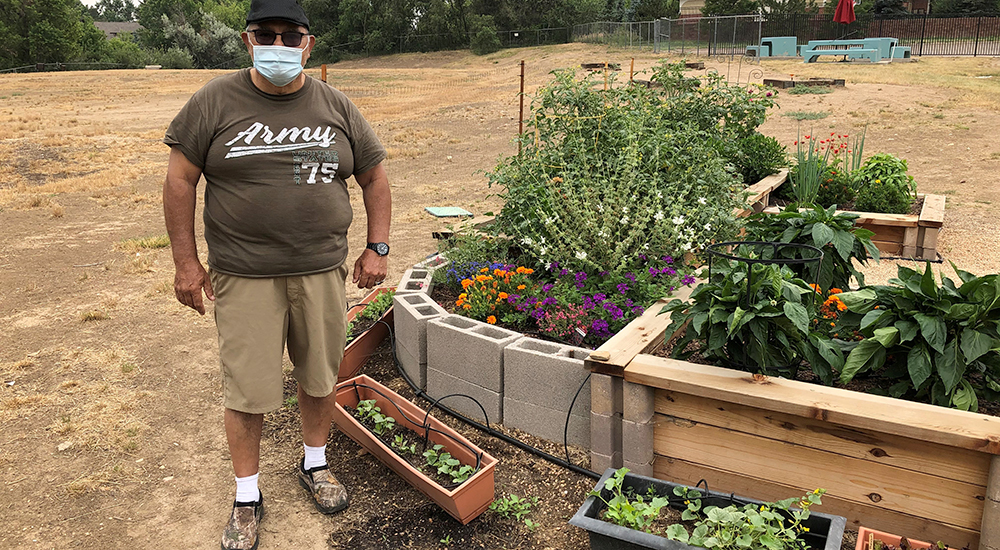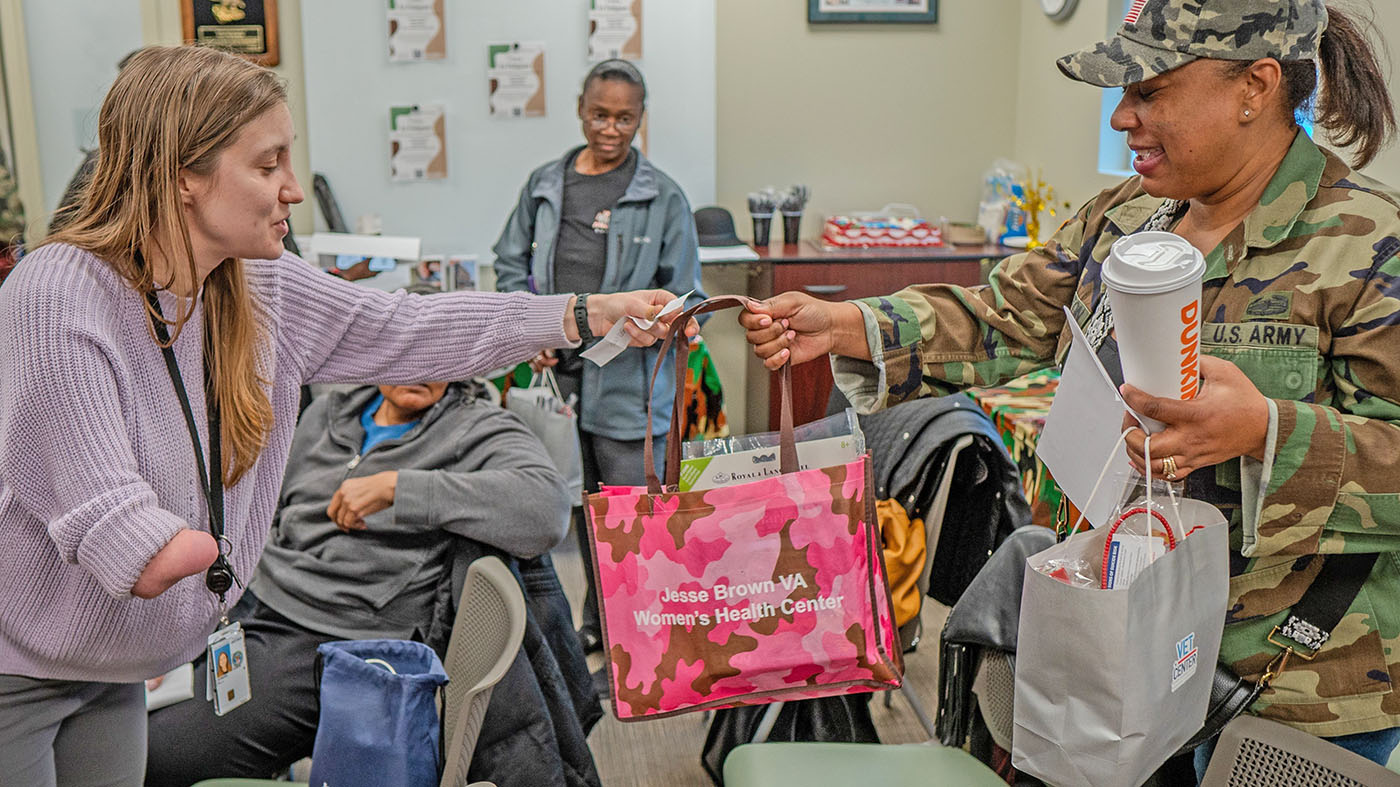How do you make the most of difficult times? Plant a garden!

Domiciliary residents have been enjoying a bounty of benefits from their harvest these days in the form of healthy dinner salads, grilled Shisto peppers, fresh cilantro on tacos and strawberry mint delight desserts all prepared by the domiciliary kitchen. Next on the menu is fresh salsa and jalapeno poppers once more vegetables are ready to pick.
That’s what Veteran residents and staff of VA Eastern Colorado Health Care System’s (VA ECHCS) Domiciliary Care for Homeless Veterans (DCHV) program have been up to.
Much like Victory Gardens that sprung up around the country in the early 1900s to support the war effort during both world wars, Veterans of the domiciliary program benefit from the garden that was first planted in May. An interdisciplinary VA ECHCS team helped.
In the photo above, Veteran Joe Tacoronte showcases the raised garden beds.
The domiciliary serves as a home for Veterans who are at risk of homelessness. There, a clinical care team made up of medical, psychiatric, vocational, educational and social services provides their care.
The community garden project was brought to life by former Veteran resident Joe Tacoronte, dietician Beth Hovel and recreation therapist Jessica Conyers. The raised garden beds were installed in September 2019 by Coresite employees as part of their community service day project. Tacoronte took ownership of the project. When he later found housing, new residents kept the garden growing strong.
Residents have been enjoying a bounty of benefits from their harvest: healthy dinner salads, grilled Shisto peppers, fresh cilantro on tacos and strawberry mint delight desserts — all prepared by the domiciliary kitchen. Next on the menu is fresh salsa and jalapeño poppers once more vegetables are ready to pick.
Veterans gaining life skills
Veterans harvest produce and incorporate it into their meals. In doing so, they’re not only cultivating nutritious habits, but also gaining life skills.
“Some therapeutic benefits of gardening include increased time spent outdoors in nature, increase in Veteran socialization and stress reduction,” Conyers said.
“The garden has really brought everyone together and has been a special part of the community this year,” she added.
One special touch from the garden is the Veterans’ Honor Rose. When these special roses blossom, a current domiciliary resident thoughtfully places a rose on the POW/MIA place setting. This is the community room’s “Missing Man” table.
With much success from this year’s garden, the domiciliary team hopes to continue growing the garden in years ahead.
Domiciliary care is VA’s oldest health care program. It was first established in the 1860s, providing a home for disabled volunteer soldiers of the Civil War. It has evolved into an active clinical rehabilitation and treatment program. Today, it serves economically disadvantaged Veterans.
Terri Rorke is a public affairs specialist for the VA Eastern Colorado Health Care System.
Topics in this story
More Stories
VA Research Advisory Committee on Gulf War Veterans’ Illnesses hosting Veteran Engagement Sessions in Phoenix for 1990-91 Gulf War Veterans.
Navy Veteran and president of the American Medical Association got a colonoscopy and encourages other Veterans to do the same.
Chicago Vet Center and VA gave women Veterans information on VA services available to them.







